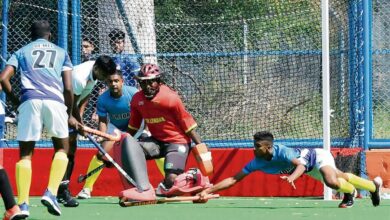India launches an Asiad mission with a record in an eastern city famed for its e-commerce
A kind middle-aged man at the Delhi airport said, “So, will it be over 100 medals this time, as they claim on TV?” The apparently innocent question is difficult for those traveling to Hangzhou to respond to since earning gold at international competitions is a little bit different than creating marketing catchphrases. In any case, expectations for a record-breaking performance will skyrocket when Indian competitors, headed by world boxing champion Lovlina Bor- gohain and men’s hockey team captain Harmanpreet Singh, march out during the 19th Asian Games opening ceremony on Saturday. And while if the 100-medal issue may not be resolved until October 8, the contingent’s mounting hopes are also a sign of how popular sport is becoming.
However, the expectations are not wholly unwarranted. India has already surpassed expectations with their 70 medal haul at the 2018 Asian Games. The anticipation of a large harvest in this eastern Chinese metropolis have been further fueled by a successful Olympics and a lucrative haul during the Common-wealth Games last year.
The city is decked up in what the populace interprets as a declaration of moving beyond Covid. The masks are no longer worn, the epidemic has been forgotten, and social estrangement is a thing of the past. The key structures and public spaces are decorated with Games logos during the busy nights, which are flooded in brilliant lights.
This year’s Asian Games will be the last big sporting event to be postponed because of the epidemic, and the opening ceremony on Saturday will, in many ways, be a symbol of how far humanity has gone since the horrific health crisis. Many people were disappointed when the tickets for the first act were sold out in a matter of days.
“I was very interested in seeing Sunil Chhetri lead the Indian contingent in the march. The tickets vanished in an instant. Every discipline, regardless of China’s involvement in it, will be sold out since Chinese people like sports, according to Sahil Meshram, an Indian medical student who has lived in the city for the last five years.
With internet giant Alibaba at the forefront of the digital and artificial intelligence (AI) revolution in Hangzhou, a key location along the ancient Silk Road, the city has seamlessly merged into the world of contemporary science. Consequently, the “smart” concept of the Games is coming to life in all its splendor, with autonomous buses creating a noticeable stir, interactive robots powered by solar energy enthralling bystanders, and unmanned ice cream vending machines sparking conversation.
Athletes each have unique coping strategies for pressure in the midst of these high-tech distractions. For young people like Charanjot Singh, participating in sports is the ideal stress reliever. The 20-year-old spent three hours on Friday practicing at the Hangzhou Esports Center, a bit bewildered by the size and scope of the spec- tacle.
There is no strain on me. The best stress reliever for me is doing sports. A little nervousness is good for me because it keeps me alert, he said.
Rudrankksh Patil, a shooting world champion, is not overwhelmed. Patil was already in his first year of senior camp when 16-year-old Saurabh Chaudhary made a splash with an Asiad gold. “Pressure is a luxury, to be honest. I consider it an honor to speak for India. We live for stages like these, he said.
On Friday, the teams for shooting, boxing, e-sports, and hockey practiced behind closed doors. The media were prohibited from entering the athletes’ village, the 80,000-seat Hangzhou Olympic Sports Center Stadium, where the opening ceremony would take place, and the formal flag-hoisting ceremony.
India’s 655-member presence in the Games is the country’s biggest ever. There is no shortage of world-beating talent in the group, as seen by the six Olympic medal counts for PV Sindhu, Bajrang Punia, Neeraj Chopra, Mirabai Chanu, Lovlina Borgohain, and the men’s hockey team.
The first teams to arrive in Hangzhou were those representing rowing, sailing, boxing, men’s football, and women’s cricket. For logistical reasons, the football and cricket teams had to stay in a hotel outside the village. Following a 17-day training camp in Wuyishan, the boxing squad arrived at the hamlet on Thursday.
“The flurry of arrivals disrupted the quiet in the athletes’ village. The athletes are in excellent mental shape and eager to compete. In the dining hall, the rowing and volleyball outcomes drew enthusiastic applause, especially the men’s volleyball team’s victory against Chinese Taipei. While concentrating on their own disciplines, the teams are also monitoring the contingent’s overall performance, according to an IOA official.
Another official jokingly said, “The dining hall is a non-vegetarians’ paradise.” “The Chinese have their own version of rotis and lentils for vegetarians. The facilities are excellent, and the athletes are housed in furnished apartments.
200 Indian athletes are expected to attend the opening ceremony, which promises to showcase Hangzhou’s technological prowess. The experience promises to be engaging and environmentally sustainable thanks to features like 3D animations, a virtual torchbearer, and virtual pyrotechnics in action. In case of bad weather, the organizers have also arranged a condensed version of the ceremony that will be performed inside at a nearby location. This aims to be the biggest Asiad in history, including over 12,000 competitors from 45 countries competing in 40 sports.







